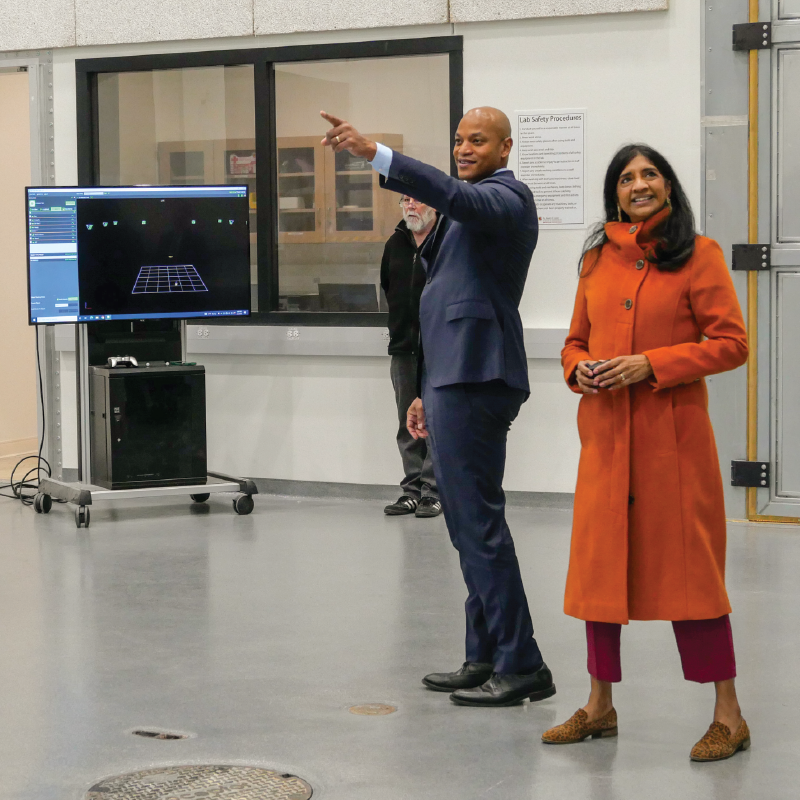News Story
UMD Transportation Experts Awarded $1 Million DOE Grant to Reduce Transportation Energy Use and Emissions

CATT Lab manages the world's largest transportation big data archive.
The U.S. Department of Energy (DOE) in September announced a $1 million grant to transportation experts at the University of Maryland to develop an online tool that will empower transportation officials to effectively fold energy use and emissions into decisions about transportation infrastructure. Led by the Center for Advanced Transportation Technology Laboratory (CATT Lab), part of the Maryland Transportation Institute, the project is one of 42 selected by DOE to enable affordable mobility, strengthen domestic energy security, reduce our dependence on foreign sources of critical materials, and enhance U.S. economic growth.
More than 25 percent of the energy consumed annually in the United States is used for transportation purposes, and federal, state, and local policies increasingly require transportation officials to weigh this metric along with safety and travel efficiency when considering new infrastructure projects.
“While measures of sustainability are critical in transportation analysis, existing methods take considerable time and effort from highly trained professionals to achieve meaningful results,” said CATT Lab’s Mark Franz. “Our Transportation Energy Analytics Dashboard (TEAD) will offer transportation agencies and researchers a state-of-the-art online tool to estimate energy use and emissions using intuitive interfaces and data visualizations that streamline the analysis process.”
During the two-year project, the research team will evaluate, model, and integrate measures like fuel use, carbon emissions per vehicle miles traveled, and energy efficiency into TEAD, which will be available in Washington, D.C. and Columbus, Ohio. Part of CATT Lab’s Regional Integrated Transportation Information System—better know as RITIS—the tool will allow users to monitor real-time and short-term predicted sustainability metrics as well as offer the ability to perform historical analysis to assist in performance reviews and planning applications.
“This project will provide the foundation for a number of innovative smart cities applications, such as incentive programs that nudge travelers to use more energy-efficient and low-emission modes, departure times, and routes,” said Lei Zhang, Herbert Rabin Distinguished Professor and MTI director.
Franz, Zhang, and other UMD transportation experts, along with collaborators at the National Renewable Energy Laboratory, will ensure TEAD meets user needs by running it through several case study scenarios tailored to the D.C. and Columbus regions. The team will also work closely with regional stakeholders when evaluating metrics and data sources for the dashboard.
“TEAD has the potential to change how agencies operate and design the transportation network,” Franz said.
Published October 5, 2018











